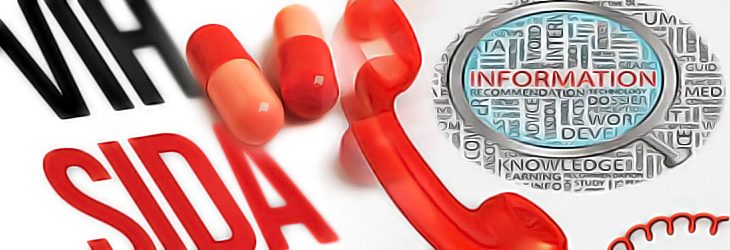Autores: Orozco Mossi N1,2, Alastrué Loscos JI2,3, Montes Luna M1,2, Guillen González J1,2, Barreira Franch I1,2, Torres Tronchoni I1,2
1 Médico residente de Medicina Familiar y Comunitaria. Valencia.
2 Miembro del Grupo de trabajo de enfermedades infecciosas de la Sociedad Valenciana de Medicina Familiar y Comunitaria.
3 Médico de la Unidad de Prevención del SIDA y otras ITS de Valencia. Dirección General de Salud Pública. Conselleria de Sanidad Universal y Salud Pública.
RESUMEN ESTRUCTURADO
Introducción
En España se disponen de numerosos teléfonos de información sobre el VIH, gestionados por Organizaciones No Gubernamentales (ONG) y Centros Públicos Sanitarios (CPS).
Constituyen una buena herramienta de prevención, ofrecen información fiable y promueven comportamientos saludables. Sin embargo, se desconoce si la información ofrecida en este tipo de recursos es homogénea y si se ajusta a las recomendaciones de las guías.
Objetivo
Analizar la variabilidad y la fiabilidad de las respuestas ofrecidas desde veinte teléfonos de información, la adecuación de la atención telefónica y de la entrevista clínica.
Material y métodos
Estudio cualitativo, observacional, transversal, descriptivo, mediante entrevista telefónica planteando cinco preguntas a diez CPS y diez ONG relacionadas con la profilaxis post exposición (PPE), el periodo ventana (PV), la existencia, fiabilidad y periodo ventana de la prueba rápida y los riesgos del sexo oral activo (felación/cunnilingus).
Valoración subjetiva del entrevistador como solicitante de información sobre el proceso comunicativo, considerando tanto la empatía de la respuesta telefónica como la adecuación en el manejo de la entrevista clínica.
Resultados
Algo más de la mitad de las preguntas fueron correctamente contestadas por las ONG y aproximadamente tres cuartas partes por los CPS. Sobre la PPE, más de la mitad de las ONG y tres cuartas partes de los CPS contestaron correctamente. Con respecto al PV, casi un cuarto de las ONG y la mitad de los CPS ofrecieron respuestas correctas. En referencia a las pruebas rápidas, fueron adecuadas en casi la totalidad de respuestas en ONG y en CPS. Los riesgos del sexo oral fueron correctamente valorados en algo menos de la mitad de las ONG y en la gran mayoría de los CPS.
Conclusión
Existe variabilidad en las respuestas ante el mismo supuesto clínico y en algunos casos inadecuación de la información con respecto a las guías. Es necesario mejorar la formación de los informadores y homogeneizar la información, especialmente en las ONG.
Palabras clave: Información telefónica, Prevención, VIH.
No hemos recibido financiación de ninguna institución.
Evaluation of the reliability of the HIV / AIDS information phones in Spain
ABSTRACT
Introduction
In Spain, we have many HIV information telephone numbers, managed by Non-Governmental Organizations (NGOs) and Public Centers (PC).
They constitute an excellent tool of prevention, offer reliable information and promote healthy behaviors. Nevertheless, it is not known if the service given by this type of resources is homogeneous and if it adjusts to the recommendations of the guides.
Objective
To evaluate the reliability of the answers offered from twenty information telephones numbers.
Method
We performed a qualitative, observational, cross-sectional, descriptive study by means of a five question telephonic interview to 10 state PC and 10 NGO related to the post-exposure prophylaxis (PEP), the period window (WP), the existence, reliability and WP of the rapid test, and the risks of oral active sex (fellatio/cunnilingus). Subjective Intercourse between operator and the solicitor of information was also evaluated.
Results
The NGOs and approximately three quarters by the CP. answered slightly more than the half of the questions correctly. On the PEP, more than half of the NGOs and three quarters of the PC answered correctly. With regards to the WP, almost one quarter of the NGOs and half of the PC offered correct answers. About the rapid tests, they were suitable in almost the totality of the NGOs and PC. The risks of the oral sex were valued correctly for slightly less than the half of the NGOs and for the great majority of the PC.
Conclusion
It is necessary to improve the informers´ training and to homogenize this information, especially in the NGOs.
Key words: Telephonic Information, Prevention, HIV.

